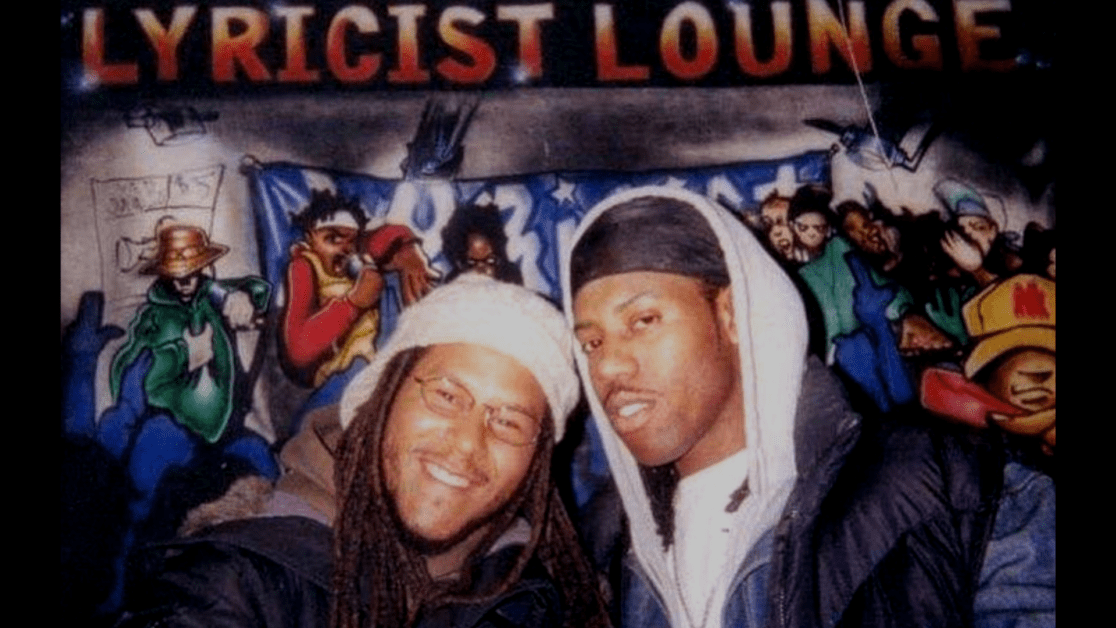The Lyricist Lounge, the premier destination for New York’s underground rap cultural expression, is celebrating its 30th anniversary. The most recent stop in this yearlong celebration that started at the Kennedy Center in 2021, is the historic Apollo Theater in the heart of Harlem, on 125th street on Saturday, Apr. 16 at 8:00 pm.
The line-up is neck-bobbing rich with names like Bahamadia, Grand Puba, Mr. Cheeks, Buckshot, CL Smooth, Cru, Large Professor, Rah Digga, Talib Kweli, DJ Trase, Lords of the Underground, and Al Skratch slated to touch the stage. The headliner of the evening is the blast master KRS-One, and the house DJ will be Kid Capri.
AllHipHop.com got a chance to talk to Lyricist Lounge Founders Danny Castro, Anthony Marshall, and rapper Talib Kweli about the legacy of the Lyricist Lounge movement, lessons learned for the future, and some of their favorite moments from those early years.
KERSHAW ST. JAWNSON: Let’s just start. What’s been going on with the Lyricist Lounge?
DANNY CASTRO: We’ve been all over the place. We’ve been grinding, you know. We’ve been working on doing events, a lot of events. We’ve been celebrating our 30th anniversary. We did a really awesome show last year in November at the Kennedy Center. That was just monumental. And we are looking forward to doing this one at the legendary Apollo Theater coming up this Saturday. It’s going to be crazy.
KSJ: What you all created for the culture is worthy of the Kennedy Center honor. For our younger audience who has no idea what the Lyricist Lounge is, can you break that down for us? Talk about some of the big-name artists rocked with your movement?
DC: Basically, the Lyricist Lounge is a Hip-Hop movement that’s been around for 30-plus years now. We started back in 1991. And it started as an open mic session that we would have every week. And it evolved to us doing Hip-Hop showcases. We created a platform for up-and-coming artists. But it also became a forum for unsigned artists and established artists.”

We're celebrating with a party fit for the hip-hop history books
🔥https://t.co/JH9cokJ0Nv https://t.co/OTbg5ft4VF
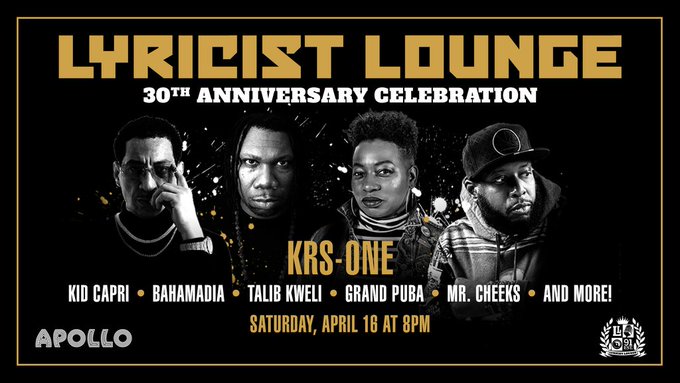
A lot of artists would come to hang out. And then we started building this whole big movement.
It was just a huge place where folks would come and cultivate, whether you were an artist or you were in the industry, people would just come and hang out.
We did showcases, and national tours and then we started doing mixtapes with Echo Unlimited. That evolved into us doing compilation albums, Lyricist Lounge, Volume One, and Volume Two.
ANTHONY MARSHALL: We have a long history. When you think of 90s Hip-Hop, we think of all that energy that was going on. Our brand was a huge part of that. This was that place where people could go to connect with people, prior to the internet. Prior to social media.
What I’m equally excited about is really also where we’re going. We’re really kind of starting over in a lot of ways. As you know, starting with these beautiful events like the Apollo and the Paramount in the Bay Area in June. But in addition to that, we’ve created our own social token called ‘Bars.’ We’re using all of these different ways, people are paying attention to what’s going on in this world of cryptocurrencies, blockchains, and NFTs. I know, everybody’s heard that word a million times. And that’s been playing out well for us. So, I’m excited about that.
KSJ: Let’s talk about some amazing talents that kind of jumped out of the Lyricist Lounge.
AM: It’s a long list. Obviously, this man right here (directing attention to Talib Kweli). Yasiin Bey. It goes on and on … from The Roots to Common. You name it, it was a huge circle of us, all kind of coming up together at the same time. Some of us even went to high school together. Big Pun! Fat Joe! Eminem! You know we were all just kind of family at that time.
KSJ: It is not hyperbole to say giants of the culture came out of your movement. Now, with the new shows, what kind of impact and significance do you think they will have for the next generation?
AM: It’s really about paying homage. The language we’ve all been using recently is ‘giving each our flowers while we can.’
What we did back in those days, and what we all did as a collective, really set the bar around a certain level of lyricism, and really honoring that pen, it’s a beautiful thing. As we look into the future, the Gen Z crowd and a number of others are getting back to that. We just felt it’s a really good time to, you know, to relaunch the brand to get financial empowerment and cultural freedom.
KSJ: Talib, talk to me about how important the Lyricist Lounge was for your career in those early days?
TALIB KWELI: I mean, for me, it was everything. Danny and Anthony in particular were guys that I knew before I performed at Lyricist Lounge. They challenged me. They didn’t just put me on the stage because I was around. They challenged me to prove myself and if it wasn’t for the culture surrounding Lyricist Lounge—there were a bunch of clubs going on, promoters, dancers, graffiti artists, visual artists, all of us at the same time —it created a place for us to have a home and to meet, and to exchange these ideas.
It is the stew that I come out of and is instrumental to what I do.
KSJ: You guys were teenagers when this started. What did you teenagers know about curating art? What were some of the hiccups that you guys bumped into?
AM: You nailed it there. When you talk about how we were, we weren’t old enough to get in the clubs that we were renting… That was a big deal. We are Brooklyn kids. Lower East Side kids. We had to be creative and figure out ways to get in the door. There were real obstacles at that point in our careers. Once, we asked a friend to dress up like our lawyer …we did any and everything just to get in the building. It was great.
DC: Back in the days, we had this white cat, he was a musician, and he was older. So, we just figured out a strategic way to get in the Village Gate in the West Village.
Ant and I were 17, and we had a meeting with the owner of the club. He was like this older white man. Thinking back, it was hilarious. We had this representative, but we were the ones doing all the talking to the owner of the club. Our ‘lawyer’ wasn’t really saying much. At the end of the meeting, we ended up getting a deal with the club. And the owner was like, “Hey guys, look, next time, you don’t have to bring anybody with you. Right? We know that’s not the lawyer. And so, all good, no worries.
We were fortunate to have a mentor at the time. His name is Charles Thompson. He was the one that pretty much educated us on becoming entrepreneurs. He has a nonprofit organization, which he still is running called Sound Business Institute, where he teaches the youth that are in high school, how to become entrepreneurs.

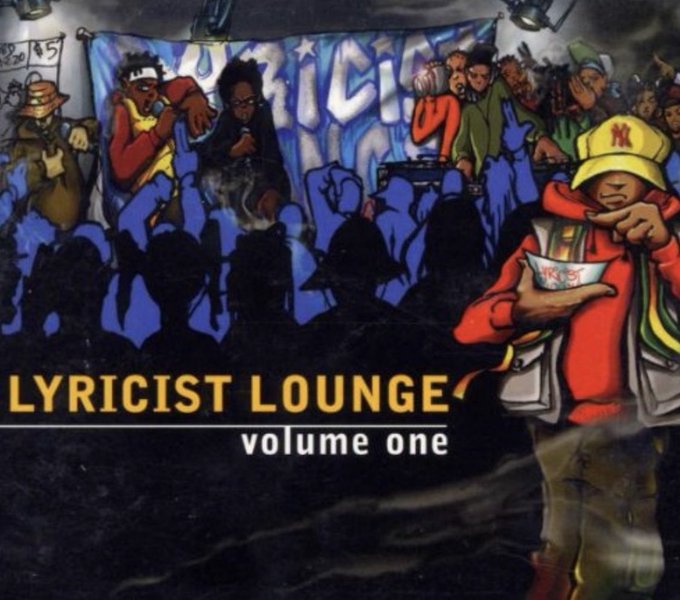
KSJ: You still carry the banner. People may not know about your label, your music, and the many artists you mentor. Talk about being the bridge for two generations, mentoring artists coming up.
TK: Well, I want to be clear that that guy, Charles Thompson, that Danny just talked about, I’ve never had anybody like that in my life. And it just goes to show you the importance of having those types of mentors.
How it impacts the next generation, I wouldn’t put myself even on the level of that dude. Because while I do inspire people, I don’t think I inspire people in that way.
My parents are educators, like academics, but they didn’t know much about money. They are wonderful people, great teachers, great parents, wonderful, wonderful, excellent parents … but they didn’t teach me about money. They didn’t teach me about business or about entrepreneurship. Those are things that I had to be forced to learn. I’m still not excellent at it. I’m good at rapping. My talent takes me far and I’m ambitious. I have a family to feed. So, I’m a hustler. I’m from Brooklyn. So, I do what I got to do.
But even now, I spend long hours on the phone with Anthony and he was opening my mind up in different ways. So, the rappers, people like me, get put in the forefront. Because it’s sexy, it’s easier to sell us. But if it wasn’t for this guy, Charles Thompson, and people like that who are unsung, Danny and Anthony would not have been able to put me in a position to succeed as an emcee.
The people who have signed on my label, like Niko Is and Jessica Care Moore, and other people I’ve worked with, what I promised them is that I can get their music out there because that’s what I know how to do. I’ll be honest, we could use more people like to do that, like the person Danny’s talking about just in general.
KSJ: Tell me about your favorite moment in the Lyricist Lounge.

Soundbombing or Lyricist Lounge? https://t.co/ax5JV9z1Sn
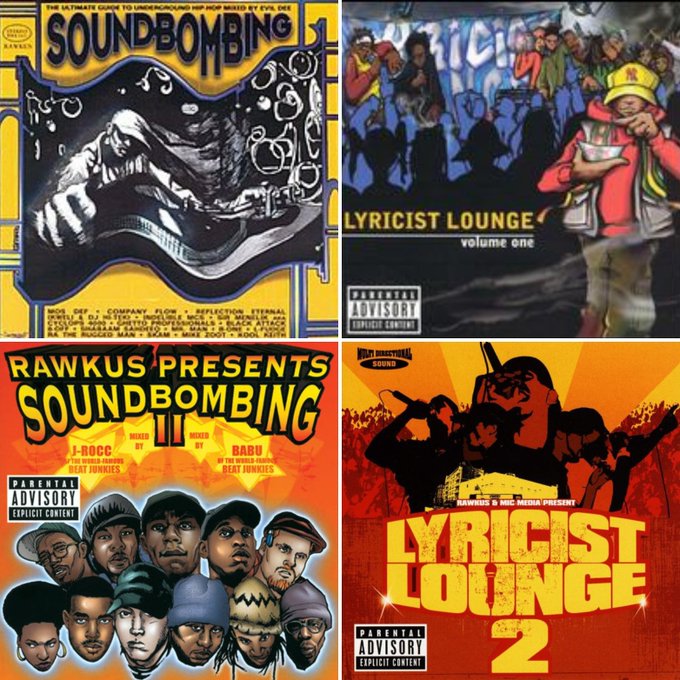
TK: Mine is very easy because it’s the moment that really catapulted my career.
No switch that. My favorite Lyricist Lounge moment is me performing with De La Soul at Tramps in 96, I believe.
And I was gonna say that a couple of months before I performed at SOBs with Q-Tip and Rah Digga and that really catapulted me, right? That got people to invest in me. I think I got a deal after that. People got invested in me as an artist. It really convinced me that I could do this for a living.
Danny and Anthony invited me back for the next lounge because that’s how well I did. It was like, ‘Okay, you killed it, you got to come back.’ And the lesson I learned was ‘Okay, you did it once, but can you do it consistently?’ And while I was not wack by any means, with De La, it wasn’t the same energy.
In retrospect, I don’t quite remember what choices I made. I learned that it’s not that easy to capture that magic (like I had at SOBs), and that’s the true test of character as if you could keep doing it consistently. So, I vow after that De La Soul performance to never let that happen again. And so, for me, that was probably that moment.
There was a time when Diddy came to me and Mos Def, but that was a year later. He had more conversations with Yasiin. It wasn’t really a conversation with me, I was in the room. Biggie had just passed away. It was 97. Diddy had come to the lounge, and it was a little awkward because, while Diddy does come from the same community as we do, by that time he was looked at as anti what the lounge was supposed to represent … even though we all represent the same things.
There was a little discrepancy. He was trying to get some clarity on the lyrics for ‘Children’s Story,’ which is a song that ended up coming out on the Blackstar album. He felt like the lyrics were aimed at him, or at least at the type of music he does. He and Yasiin had a conversation. I believe it was at Wetlands.
I knew Diddy from working with Jessica and Funkmaster Flex. He knew me too. This time was before Blackstar had not dropped an album. There was no hype around Blackstar. Diddy was there to see the Lyricist Lounge. He was familiar enough to know what was being said at the Lyricist Lounge, in the wake of the great Notorious B.I.G. passing was very important and he had to be there.
AM: My favorite moment was Latin Quarters in 98. We were trying to be and wanted to work with certain artists. Sometimes that made it hard to get into the club. If you have one bad night, it would just kind of go through all New York that you’re not a good brand to work with.
So, this night, I think we were just thinking about talent. We didn’t think about everything else, and we booked a show hosted by Fat Joe performances by Big Pun, MOP, Hussein Fatal, The Outsiders, and Eminem. That was an amazing night and we made it out without any problems. We had the Bronx next to Brooklyn next to New Jersey and nothing happened.
At the end of the day, it was a beautiful night for the culture.
We have a lot of that footage. We got 30 years of archival footage, we’ve never put out, so you know, we’re gonna start doing that the right way. The doc is coming.

I saw Uno & Jazo 🥃 https://t.co/ExTfCeLTMj
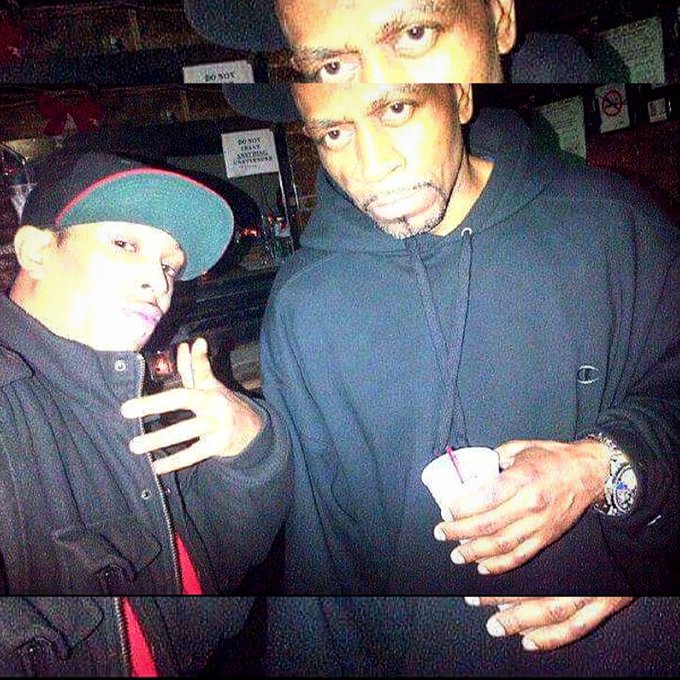
DC: We have so many classic moments, but I will mention two really quick. We did the launch party for Bad Boy back in 93. Diddy hosted along with Biggie. So. That just was a classic night.
Biggie performed as well. He did ‘Party and B#######.’
There was a big commotion when he was performing. All of his whole crew was acting like they wanted to fight, and he just did, ‘Can We Just All Get Along,’ and they all just started jumping. And it was just bananas. It was just nuts. That was the first time we ever saw that happen.
I have to mention when we had like this young lady performed down with The Outsiders. Her name was Rah Digga, and she was pregnant … eight months pregnant.

Mtv lyricist lounge show.. https://t.co/DQiBBqS5Qo
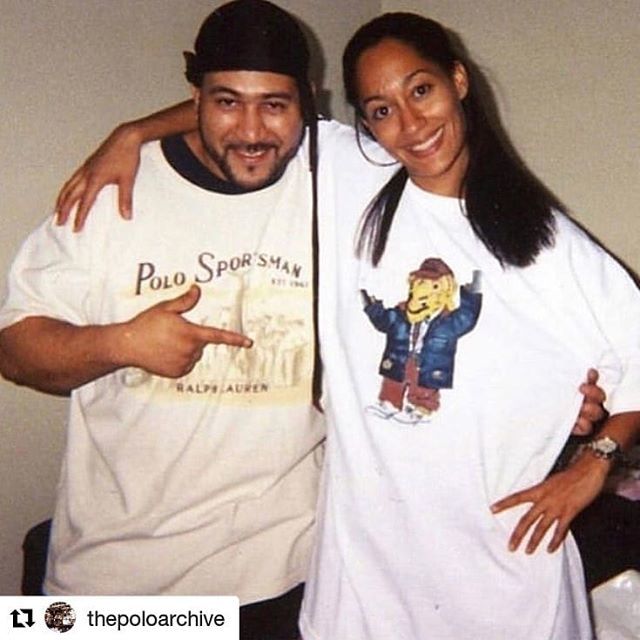
It was the same show that Kweli performed that SOB and Q-Tip hosted. This was the first time we showcased her, and it was just bananas. Her whole host style, cadence, flow …everything was just so dope. After the show, Q-Tip wanted to sign her to his label but then he passed that on to Busta Rhymes. And that’s how she got down with the Flipmode Squad. Another classic night.
KSJ: You guys created stars!
TK: They gave us the platform and the vehicle. They gave us the space to be ourselves when nobody else would give us that space.
KSJ: Y’all were MySpace … Y’all were Soundcloud before it was Soundcloud!
TK: It is deeper than Soundcloud or MySpace. Those guys come from outside of the culture and just figured out how to capitalize on it. These guys, they were the culture. They were us.
AM: Even when you think about the connections… A lot of the stories we’re still learning because we were on stage and backstage. I remember reading the article where Alicia Keys was talking about meeting Crucial Keys at the Lyricist Lounge. That was way before they even started working together and led to a lot of the music they did on her first album … that got her out there. I have started to appreciate that this was even more than just music and a stage … for so many of us it was a community.
To purchase tickets to the Lyricist Lounge 30th Anniversary at the Apollo and witness Hip-Hop royalty go nuts, get your tickets here.

